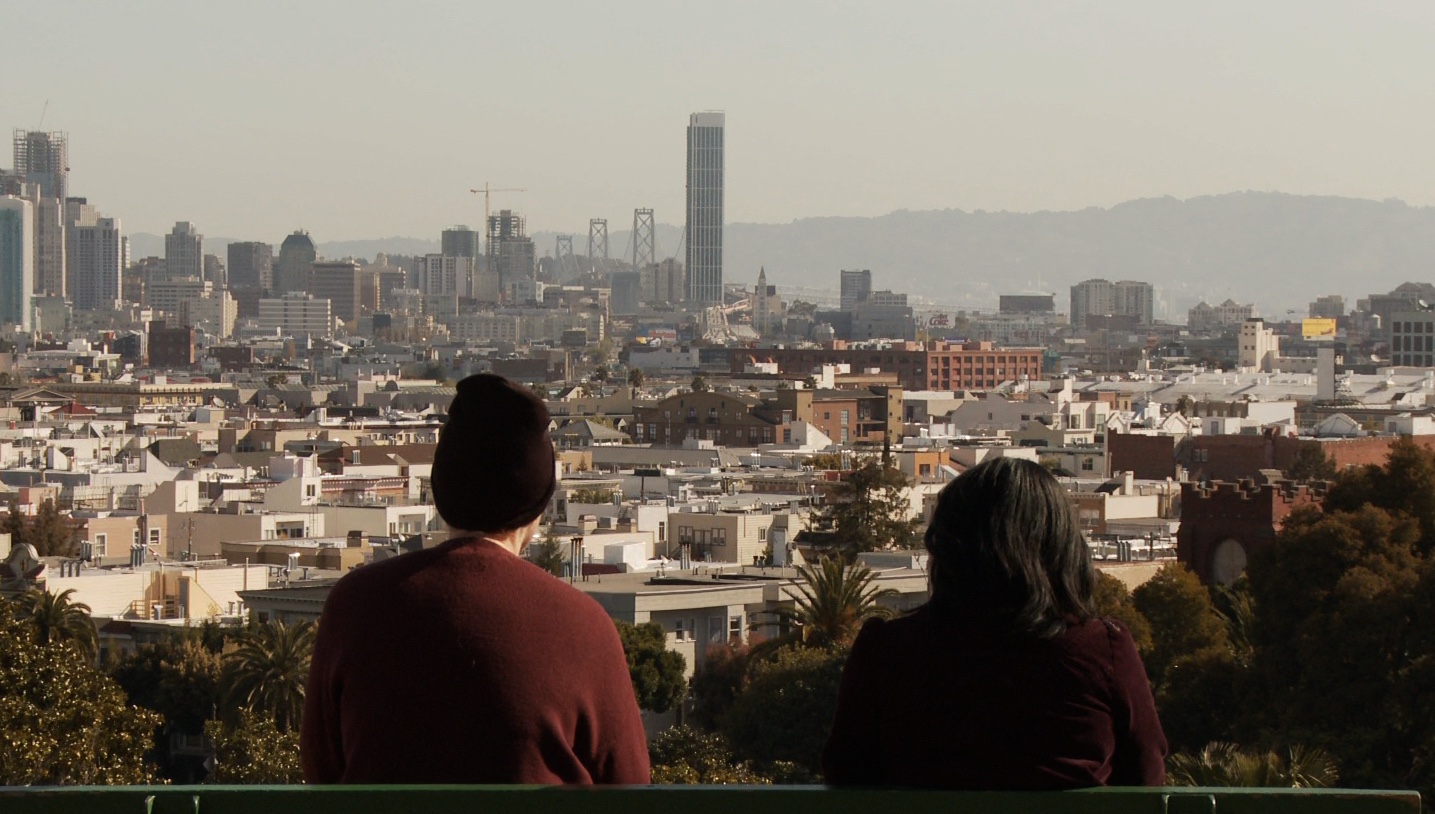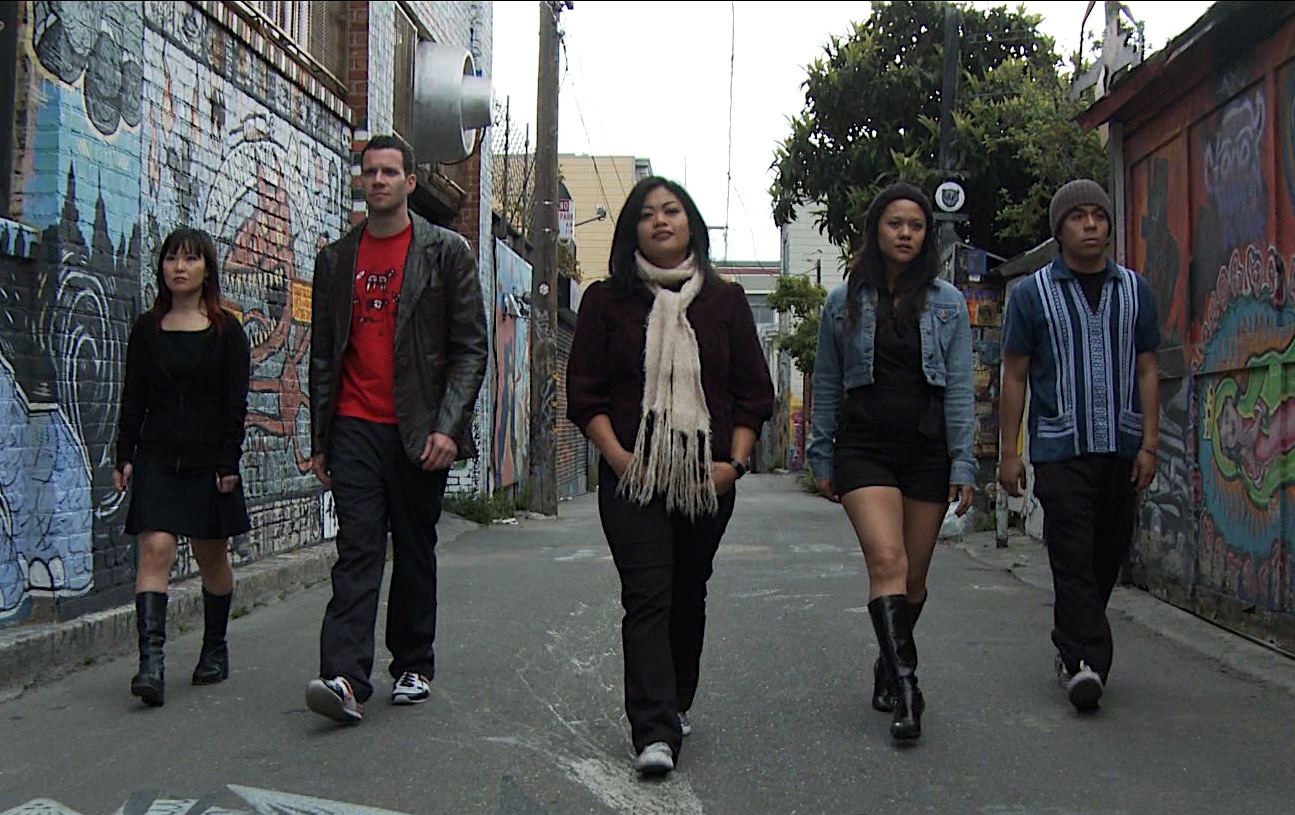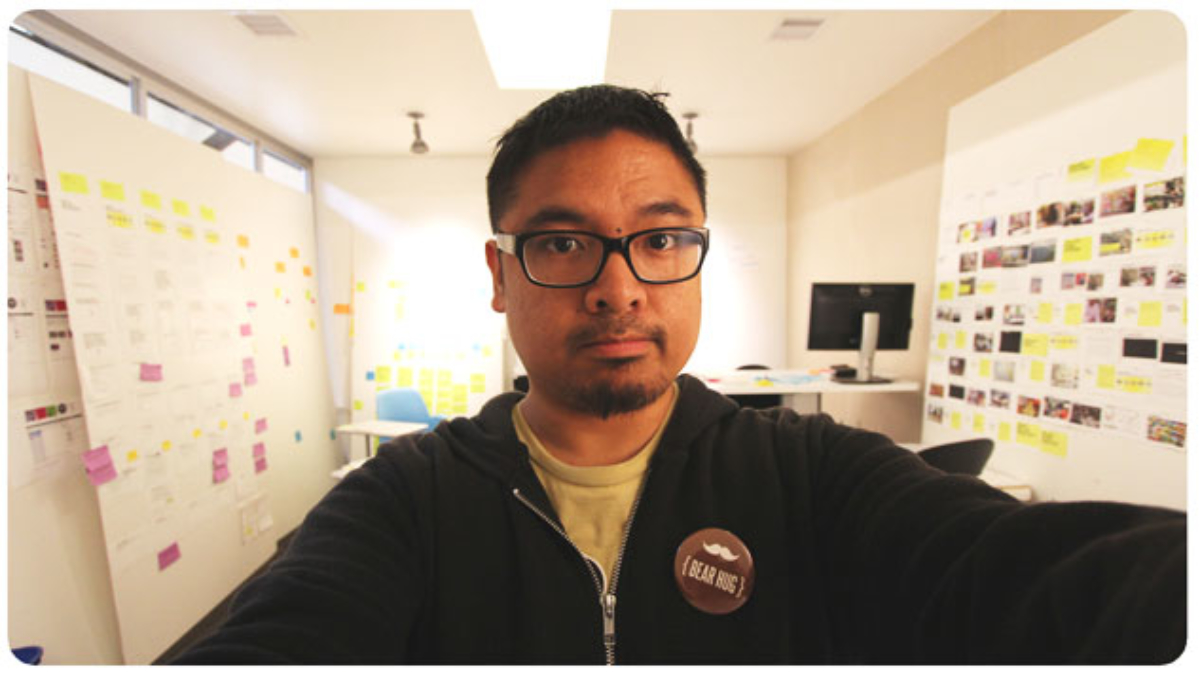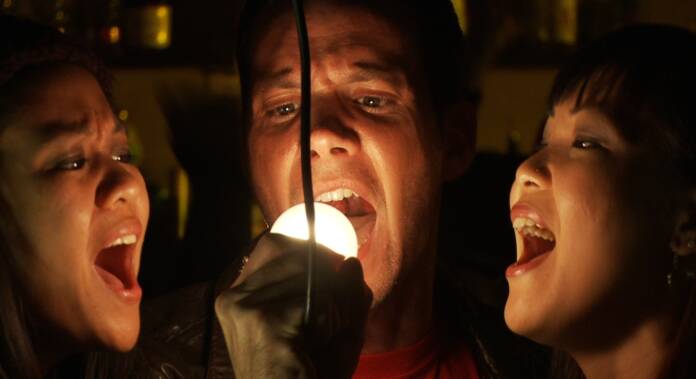What Fruit Fly writer/director H.P. Mendoza originally had in mind for the film’s 10th anniversary screening at this year’s CAAMFest was a replay of its 2010 debut at the festival—when Castro Theatre organist David Hegarty played the film’s score to the delight of a packed-in crowd, followed by an after-party around the corner at The Café, which pulsed with music and videos from the film. Either that, or maybe a screening in Dolores Park, with Fruit Fly unspooling on one screen, while on another, new footage would reveal star L.A. Renigen revisiting the film’s locations, clocking the startling changes to San Francisco over the last decade.
Coronavirus ended those dreams, but didn’t vanquish either CAAMFest 2020, the Asian American Film Fest which moved online May 13-22, or Fruit Fly‘s anniversary screening, which is CAAMFest’s closing night feature, complete with a virtual red carpet, a pre-show, what Mendoza describes as “a musical surprise” afterwards, a Q&A with cast and crew, and a virtual after-party. Oh, and it’s a singalong. Whatever disappointment Mendoza feels about the change in plans, he has found the bright side.
“This is surfacing opportunities that weren’t previously available,” Mendoza says during a recent phone call. “For example, I posted about the Fruit Fly screening and silly, naïve me, I’m still in the mode of, ‘Oh, yeah, I need to get butts in seats.’ I’m tweeting about this. I’m posting on Facebook. I’m posting on Instagram. And there are people telling me they’re going to tune in and they’re in Spain. They’re in Kenya. They are people I’ve met all over the place. ‘Wow, wait a minute, we have a much larger platform now.’ So, there’s that.”
There is something almost appropriate about Fruit Fly screening in the middle of a pandemic. The film is a snapshot of San Francisco on the brink of huge change. The virtual screening will take place in an entire world in the midst of huge change. Watching it from the hindsight of 10 years is to see how tuned-in Mendoza was to what was coming. At a time when only the new Rincon Tower blemished the old city skyline, the animated title sequence, designed by the filmmaker and his husband Mark Del Lima, depicts skyscrapers dominating the view and beautiful old buildings giving way to the impersonal new.
Mendoza remembers, “I remember halfway through working on that, I was like, ‘Am I willing things into existence? Should I not put some of these buildings in there?’

“This is a 2010 film. We were done in 2009. We were shooting in 2008, based on a script I wrote in 2007. I was basing it on my experiences moving into an artists’ commune in 2006. It was already reflective of a change. There was a sea change starting.”
Fruit Fly was Mendoza’s first film as a director, coming after his success as the writer and star of 2006’s Colma: The Musical. He met L.A. Renigen shortly before director Richard Wong made Colma, suggesting the actor and performance artist audition for the movie. Over the course of making it and later touring with the film on the festival circuit, Mendoza got to know her well. He wrote Fruit Fly‘s lead character, Bethesda—a performance artist who moves to a San Francisco artists’ collective with plans for mounting a show in town while searching for her birth mother—for Renigen.
“By the time we were done with ‘Colma,’ I was like, ‘L.A., I’m going to send you a PDF. I want you to give it a read, you push back if any of this feels too personal for you,'” Mendoza says. “She said, ‘Oh my God, you kind of wrote about me.’ I said, ‘Yeah, what do you think? Would you be willing to do this? By the way, it’s a musical.'”
The world depicted in Fruit Fly of struggling artists throwing their lots in together, days spent plotting their futures giving way to nights spent clubbing, has largely disappeared under the tech onslaught, although pockets still exist.

“Do I know any Bethesdas in San Francisco? Yes. I’m friends with all of them, but they’ve been suffering for years,” says Mendoza.
But the fact that the city has changed so much does not come as a shock to a filmmaker who realized at the time that he was capturing a moment. Posterity did not concern Mendoza. He was making a film for the here and now.
“I didn’t want to do a film that would stand the test of time,” he says. “One of my tenets was, ‘I’m going to make the weirdest musical. I’m going to use the nomenclature of the day, all the slang.’ Even the phones don’t stand the test of time when you watch the movie. I made references to current things. I think that’s one of the things that kind of reminded everybody on the set, ‘Hey, we’re not trying to make Citizen Kane here. We want to make a great film. We want to make something that makes us feel great, but let’s also not take it too seriously… We’re just going to have some fun.'”

That fun continues with the 10th anniversary Fruit Fly screening and has continued over the past decade for Mendoza with new projects. He has continued to write and direct films, including the 2012 horror movie I Am a Ghost and Bitter Melon (2018), a comedy drama about the effect of toxic masculinity and domestic violence on a San Francisco Filipino-American family. Recently named a creative partner at Frameline, Mendoza will be making an animated musical trailer for this year’s virtual festival, among other duties.
He is also busy planning for his future. He and actor Anna Ishida are talking about collaborating on a shelter-in-place horror comedy musical. He has also been pitching scripts to Hollywood studios via Zoom, finding a warm reception despite the current lockdown.
“One production company asked me if I could make it corona-ready,” Mendoza says. “Someone else asked, ‘Can you make it COVID-19 native?’ All new lingo to me. All new lingo to all of us.”







